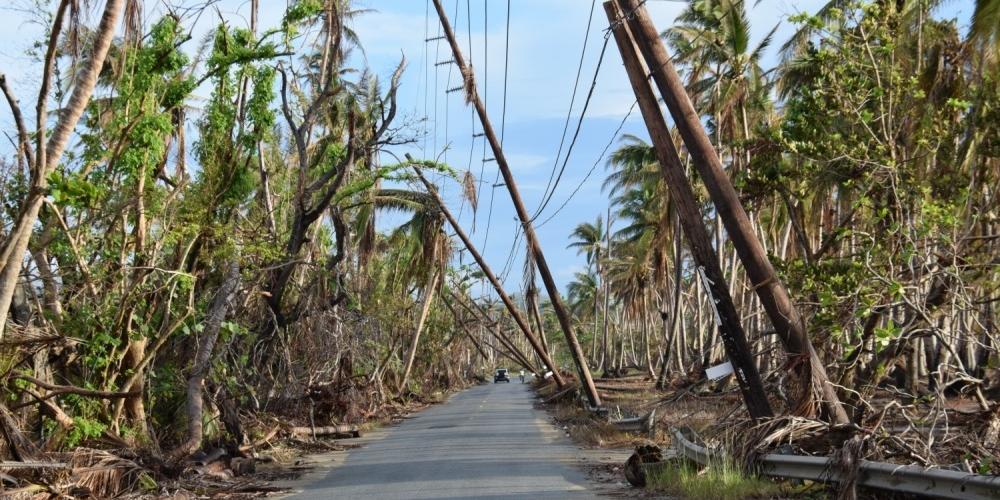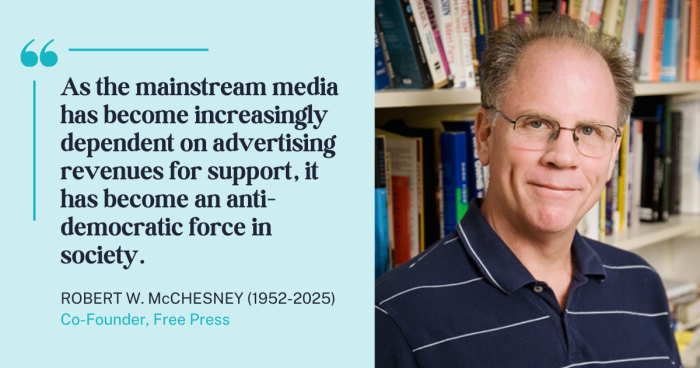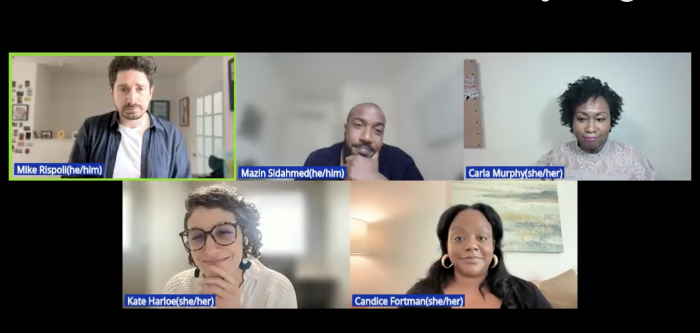Questions Congress Needs to Ask the FCC About Puerto Rico

Between 3,000 to 5,000 people died in Puerto Rico following Hurricane Maria, making it one of the deadliest disasters in U.S. history.
The storm destroyed the islands’ communications networks — and the inability of Puerto Ricans to make calls or access life-saving information contributed to the death toll. It’s critical for Congress to hold the FCC accountable and urge it to appoint an independent commission to investigate the causes of the communications blackout.
Lawmakers have an opportunity to ask FCC Chairman Ajit Pai tough questions during May 15’s FCC oversight hearing before the House Energy & Commerce Committee.
Free Press released a report on May 14 that provides a detailed timeline on the communications crisis in Puerto Rico. We also pose a series of questions the FCC needs to answer.
Here are a few:
1) Why hasn’t the FCC convened an independent commission — as it did after Hurricane Katrina — to thoroughly investigate the destruction of the communications networks in Puerto Rico following Hurricane Maria?
On Sept. 20, 2018 — the one-year anniversary of Hurricane Maria making landfall in Puerto Rico — Free Press and several Puerto Rican advocates sent a letter to the FCC urging it to appoint an independent commission to investigate the prolonged communications outage on the islands. We also called for the investigation to produce a detailed assessment of the agency’s actions or inactions, and provide clear actionable recommendations to prevent future outages.
So far Chairman Pai is resisting these calls.
2) What was the purpose of the FCC’s Hurricane Recovery Task Force and why is it so secretive?
In October 2017, Pai formed an internal Hurricane Recovery Task Force to: coordinate across bureaus and offices throughout the FCC; support the restoration of communications services following the 2017 hurricane season; and focus on the “challenges facing Puerto Rico and the U.S. Virgin Islands.” Michael Carowitz, special counsel to Pai, was appointed to chair the task force — but the names of the other members and the nature of the work they actually do are still secret.
We even submitted a Freedom of Information Act request asking the FCC for documents related to the work of the task force. Agency staff told us that they wouldn’t release these documents.
This leads us to more questions: Why has the FCC withheld important details about the task force’s policy priorities or even its membership? How often does the group meet? Does it engage directly with wireless carriers, broadcasters, government agencies and the Puerto Rican community?
What is the FCC trying to hide?
3) What has the FCC done to ensure that wireless carriers live up to their promises of granting “automatic” refunds for services not received?
In November 2018, Free Press submitted a FOIA request asking the FCC for consumer complaints and other documents related to the agency’s response during and after the 2017 Atlantic hurricane season.
It wasn’t until April 30, 2019 that we received our first set of documents: 52 consumer complaints from people in hurricane-ravaged Puerto Rico asking the FCC for help as carriers seemingly failed to give refunds to customers who weren’t receiving service. We’re still waiting for the FCC to provide the rest of the consumer complaints — along with the carriers’ responses.
The complaints provide a small window into a much larger problem: Carriers like AT&T, Sprint and T-Mobile made public promises to refund customers experiencing outages, yet the complaints we received make it clear that this wasn’t happening. The FCC should explain the role that it played — if any — to ensure that providers fulfilled their promises.
It’s important to note that the FCC’s consumer-complaint portal is accessible only in English — which means that people who speak only Spanish had no way to seek help from the agency.
4) The FCC allocated direly needed funds to accelerate the restoration of communications in Puerto Rico. Is the agency keeping track of how these funds are spent? If so, has the money made communications networks on the islands more resilient?
In May 2018, the FCC established the $954-million Uniendo a Puerto Rico Fund and the Connect USVI Fund, which planned to divvy out hundreds of millions of dollars over 10 years to accelerate telecom recovery in Puerto Rico and the U.S. Virgin Islands.
The bulk of the total simply renames existing commitments from long-standing Universal Service Fund programs that predate the hurricanes. The FCC forgave an earlier $76.9-million advance to Puerto Rico and the U.S. Virgin Islands announced in October 2017 and committed approximately another $100 million for Puerto Rico.
While we welcomed the earmarking of this money — especially given how the Trump administration has politicized this tragedy and withheld other needed funds — the FCC didn’t include any coordinated oversight measures, metrics or requirements to ensure funds are actually used to accelerate restoration of telecommunications.
We wrote to the FCC regarding the Uniendo Fund and expressed concern about the lack of oversight. Without more robust accountability measures, this money could be used to offset already planned deployments — or simply end up in shareholders’ pockets. We also cited an investor call in which a telecom CEO expressed skepticism about the company’s ability to fully restore networks in Puerto Rico.
So what is the FCC doing to hold the carriers accountable?
5) Why has the FCC failed to conduct field hearings in Puerto Rico? And why has the agency failed to translate key documents into Spanish?
Chairman Pai has visited the islands a couple of times to survey the damage and meet government officials coordinating recovery efforts. He also met with various representatives from communications companies, including AT&T, Claro, Liberty, Open Mobile, T-Mobile and Verizon.
Yet Pai has failed to hold a single public field hearing or engage directly with affected communities in any other way to inform the agency’s policies.
The FCC also didn’t publish key documents in Spanish, making it even more difficult for Puerto Ricans to participate in the process — a huge oversight given that 95.3 percent of households on the islands speak Spanish.
So why has the FCC failed to translate critical documents into Spanish? Why doesn’t the FCC have the Spanish-language expertise to communicate this crucial information? What has the agency done since Hurricane Maria — if anything — to remedy this?
6) Why is the tone of the FCC’s recently released Hurricane Michael report so different from the 2017 hurricane season report, which included a review of Hurricane Maria? Given how the FCC raised concerns in the Hurricane Michael report over the carriers’ failures in Florida, will the agency revisit the conduct of providers operating in Puerto Rico?
On May 9, the FCC released a report on its investigation into communications providers’ preparation for and response to Hurricane Michael. While this report doesn’t go far enough on its own, it reveals the FCC’s ability to provide a critical analysis of telecom companies’ conduct. Such analysis was woefully absent from the agency’s examination of the devastation Hurricane Maria wrought.
The agency’s condemnation of days-long outages in Florida contrasts its indifference to the months-long outages millions of Puerto Ricans experienced.
Urge lawmakers to hold the FCC accountable for its neglect and indifference in Puerto Rico, and check out our report on the islands' communications crisis.





